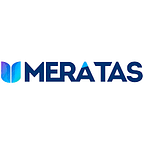Ask Yourself These Three Questions Before Going to a Coding Bootcamp
Bootcamps are an excellent way to get into a programming career if you are motivated but lack the skills to jumpstart a career in coding. But, quitting your current job, possibly moving, and coming up with the cash to pay for tuition is no small commitment.
At Meratas, we partner with leading coding Bootcamps that have placed so many students into great careers. However, that doesn’t just happen by signing up for the Bootcamp. It’s a significant amount of hard work and commitment but can be extremely rewarding. To understand who should make the commitment to a Bootcamp we’ve compiled three questions to ask yourself.
- Is Being a Coder in My Future?
Are you looking to get a full-time job as a software developer, to enhance your skills with front-end development as a designer, or to build the skills required to found a company? What are your career goals? Will the Bootcamp of your choice help you to meet your career goals?
If you have a specific coding language you want to pick up, a particular role you have your eye on, or a project or startup idea you want to get off the ground, a Bootcamp could give you the targeted expertise you need to do so. Bootcamps are similar to trade schools in that they arm you with a specific set of skills and prepare you for a particular job or career.
Here’s how a software engineer described the skills he learned at his Bootcamp:
“If I had to sum it up, I’d say that college gives you intermediate skills in computer science, and basic skills in the practice of software development. Bootcamps however give you basic skills in computer science and intermediate skills in the actual practice of software development.”
It’s important to take the time and think about why you want to go into coding and if you can foresee yourself coding in the future before you spend the time and money investing in a coding Bootcamp.
2. Does a Future in Coding Align with My Goals?
Coding can be an awesome job, but it can also be a challenging job. Coding is cool but it’s also complicated. It takes a huge amount of time and dedication. Hours can be spent staring at a computer screen solely to realize you forgot a semi-colon and that’s what’s causing your bug.
You want to make sure you’re going through the program for the right reasons. It’s important to ask yourself: What are my reasons for thinking about attending a coding Bootcamp? Does coding align with my future goals? Do I even like coding?
Avi Flombaum, founder of Flatiron School, explained that programming isn’t necessarily for everyone.
“Programming isn’t for everyone in that you shouldn’t necessarily learn to code or pursue a career as a developer if you’re not passionate about it. The only way to master a skill like programming is to love it. What some people might not realize is that coding isn’t something you learn in three months or even four years — it’s a tough, lifelong pursuit. Programmers are always continuing to learn, and it’s their love for the craft that pushes them forward and makes the challenges they encounter exciting. Don’t pursue code for the wrong reasons. Hating your job and wanting a change, but not actually loving the act of coding? Not a good reason to learn to code. Excited about the high salary, a programming job will get you but not into the actual day-to-day tasks that that job entails like parsing error messages for clues and debugging broken code? Not a good reason.”
Bootcamps teach you enough so you can land a job, but that’s just the beginning of your ongoing education as a programmer. If debugging broken code doesn’t get you excited, you might be heading down the wrong path.
To be skilled at coding you’ll want to have a passion for solving problems. That’s the job, after all. Skilled programmers love puzzles and pay attention to detail. Before you start your coding, Bootcamp ask yourself if you have a thirst for knowledge. There won’t be many days when you won’t have to learn something, there’s probably a better, more efficient, more elegant way of doing what you want to do, and there’s always someone who knows more than you do. Coding is a team effort as much as it is individual work. Ask, read, share, use, adapt, build upon, and appreciate the cleverness of your co-workers, authors, and people from the internet.
3) Is Coding Something I Can Do?
So how can you know if coding is for you or not? The best way is to stop reading about what coding is like and what others think about coding and actually try it. Luckily, with a thousand of free coding resources that’s never been easier. These free online programs will show you whether you enjoy the process or not.
All these resources have a free trial where you can try out coding for yourself without needing to pay anything.
The below resources are some free programming challenges to test your skills.
The best way to determine if a coding Bootcamp is right for you is to just get started. You’ll never know unless you try.
Bootcamps aren’t for everyone, but they can unlock a world of possibilities. Be clear about what you’re expecting to achieve from attending one, whether it’s the right program for you, and plan to invest energy into going above and beyond the requirements. If you’re looking for some great coding bootcamps that have no upfront cost, check this page out for a list!
Meratas provides a full-service SaaS Platform for Schools and Skills-Training Courses to design, administer and service custom ISA programs. Learn more.
